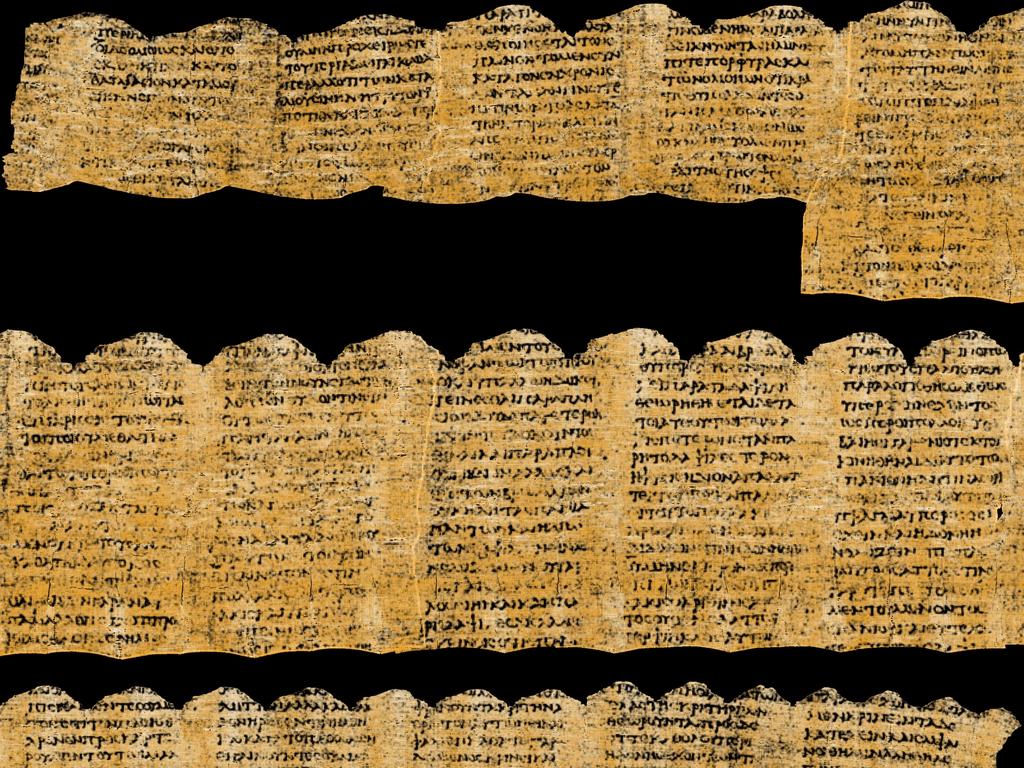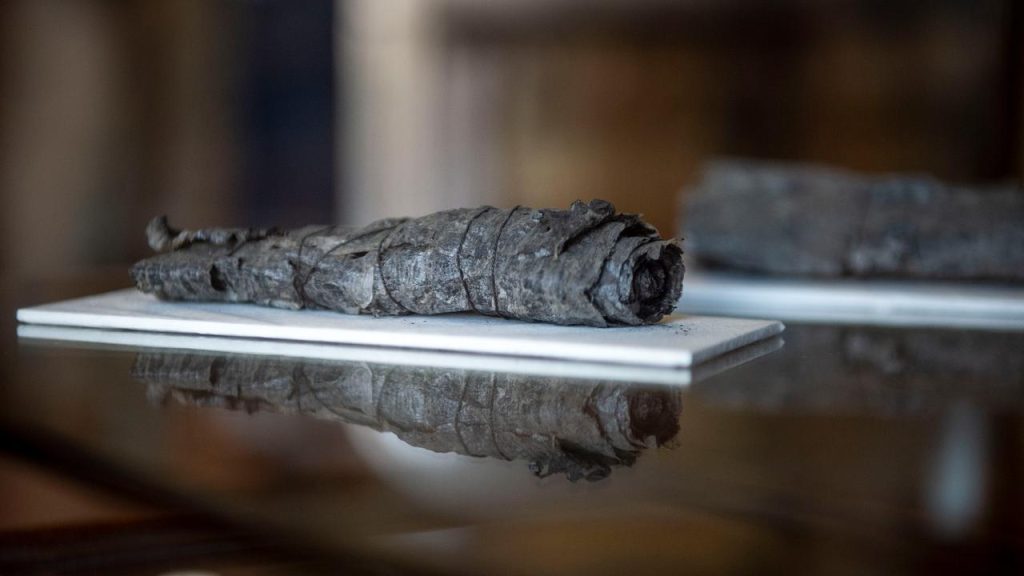Researchers have used artificial intelligence to decipher letters found on charred pieces of papyrus from the Roman era. The papyrus rolls were covered in ash after the eruption of Mount Vesuvius, and are too fragile to be thrown away.
The papyrus pieces were located in a luxurious Roman villa in Herculaneum. The manuscripts were charred due to the heat and gases resulting from the eruption of Mount Vesuvius in 79 AD. The decoded texts are only a very small part of the hundreds of manuscripts that were located in the villa.
These scrolls are known as the Herculaneum Papyri. Scientists have been searching for a way to read its contents since its discovery in 1752. Due to the fragile state of the charred scrolls, they cannot be opened. Then the papyrus leaves crumble into pieces. This has already happened in several previous attempts.
For decades, scholars thought they would never know what was in the documents. The Vesuvius Challenge was supposed to change that. American computer scientist Brent Sales and entrepreneurs Nat Friedman and Daniel Gross organized this competition last year, with prizes exceeding one million dollars.
Organizers encourage participants to decode texts using artificial intelligence. To this end, the organizers conducted CT scans of the reels and delivered them to the participants.
Artificial intelligence recognizes changes in structure
Three researchers used artificial intelligence to decipher more than 2,000 Greek letters by scanning the scrolls. For this achievement, American student Luke Variator, Swiss student Julian Schleger, and German-Egyptian doctoral student Youssef Nader will receive $700,000.
To recognize the letters, the three researchers' AI model uses the very thin texture of papyrus leaves. Using self-learning algorithms, the model was able to decode words based on changes in the structure of the leaves.
The text on the decoded papyrus fragments contains, among other things, a philosophical argument about the importance of pleasure, in which the writer points out the importance of hobbies such as music and cooking. It is not yet clear who wrote the text.

Rolls of papyrus could be a goldmine
Archaeologists hope that with this new technology they will finally be able to read the vast library from Villa Herculaneum. This technique can also be used in other texts that archaeologists find difficult to read.
Some archaeologists suspect that the entire library was much larger and still underground. For researchers, all these papyrus rolls could be a goldmine in their search for more information about antiquity.

“Coffee buff. Twitter fanatic. Tv practitioner. Social media advocate. Pop culture ninja.”











More Stories
Which can cause an increase in nitrogen.
The Central State Real Estate Agency has no additional space to accommodate Ukrainians.
The oystercatcher, the “unlucky national bird,” is increasingly breeding on rooftops.